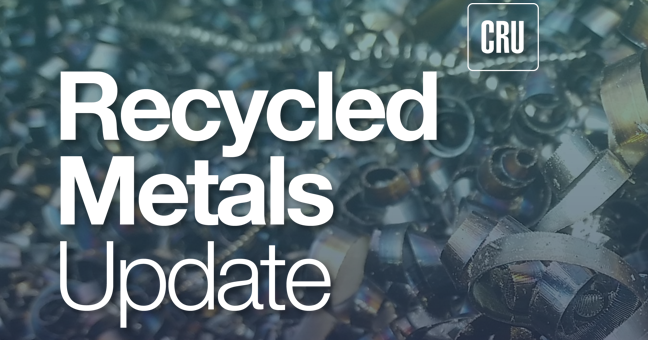Prices

August 23, 2024
Alternative metals market - Q4 showdown looms
Written by Stephen Miller
The basic pig iron (BPI) market remains virtually unchanged despite perceived weakness in other ferrous materials, such as scrap, billets, HRC and iron ore. For the US, Brazil has been the main source of BPI imports since the Russian-Ukrainian conflict arose in 2022. There have been no imports from Russia and only spotty shipments from Ukraine since then. Prior to 2022, combined Russian and Ukrainian production comprised over 65% of US BPI imports, primarily due to their lower Phos. content. Their relative absence from the market has limited the sources from where US-based steelmakers can economically import. This has created a shortage that has kept prices of Brazilian BPI elevated when compared with ferrous scrap in the US. Several countries in Europe are still importing from Russia. If they weren’t, the US shortage would be even more severe.
Brazil exports
On the Brazilian side, the only relevant market for BPI is the US. So, they have to price their product to compete with other exporting countries such as India. But more importantly, they need to keep their delivered price within range of US domestic ferrous scrap. This is setting up a possibly contentious negotiation on the next round of buying for Q4 deliveries.
Since the start of the year, ferrous scrap prices for prime scrap, namely #1 Busheling and #1 Bundles, had dropped $80-100/metric ton (mt). However, imported Brazilian pig iron has traded with a range of $470-485/mt on a CFR US Port basis. So, BPI to date has only dropped $15/mt while prime scrap dropped much more.
With weakness in demand for HRC, BPI has become an expensive addition to the burden of scrap in the EAFs of flat-roll steelmakers in the US. When calculated on a delivered works basis, BPI costs well over $510/mt based on the most recent offers from Brazil of $470/mt CFR. Mills can obtain prime scrap at around $395/mt. They want to narrow this $100/mt-plus spread.
RMU recently reached out to a major BPI buyer based in the US who agreed that pig iron prices were way too expensive compared to a wide variety of ferrous products. He also stated offers as low as $440/mt CFR have been heard from South Asian producers.
RMU also spoke to a Brazilian-based export executive about the expectations of producers there. He said the onset of rainy season next month will increase the price of charcoal, which is the main reductant used in Brazil to produce pig iron. The pig iron trade there was hoping for a rise in the US scrap market in August so they could obtain a price increase for BPI. This has not happened. As a result, they have not attempted to increase their offer price and have kept it at $470/mt CFR. There have not been any reported new sales at this price.
The Brazilians are facing a strengthening in the real vs. US dollar (USD), which negatively affects their production costs. The pig iron trade in Brazil has historically benefited from a strong USD and has made exports to the US profitable.
Brazil domestic consumption
Another factor that could affect future pricing is the amount of Brazilian pig iron bought by the domestic steelmakers. At a recent meeting of the Brazilian Steel Association, there was optimism about the demand in the domestic market. Our source noted, “for the last two to three years, it has been 50/50 [domestic/export], while it used to be 70% sold to the domestic market.” This has not happened yet.
RMU spoke with a US-based pig iron trader and distributor about the situation. He said “pig iron is too tight. US mills wanted to take scrap down in August but couldn’t get it done.” He added, “Brazil is firm at $470/mt CFR for high Phos. BPI and $485/mt for low Phos. material.”
Even though Brazilian producers were expecting a $20/mt increase for Q4 shipments to the US, it doesn’t seem very likely US-based users will agree. US buyers are expecting a decrease in prices.
HBI/DRI?
When asked whether hot-briquetted iron (HBI) could come to the rescue, the trader explained that the main source for HBI has been Venezuela. However, material there is not readily available, and their Fe yield is down to 85%. The other units which produce HBI/DRI (direct-reduced iron) in New Orleans, La., Toledo, Ohio, and Trinidad are owned by steelmakers. The same goes for the HBI plant in Corpus Christi, Texas. Therefore, the material is captive and not sold into the general market. There is also a very weak trade flow of HBI into the US from Africa and Asia.
With eyes back on pig iron, RMU will continue to monitor the progress and keep the community updated as new information unfolds.
Editor’s note: This column appeared first in Recycled Metals Update (RMU), SMU’s new sister publication. Want to meet the author of this article and learn more about RMU? Stop by the SMU/RMU booth at Steel Summit on Aug. 26-28 at the Georgia International Convention Center (GICC) in Atlanta. You can also visit RMU’s website and register for a free 30-day trial.







